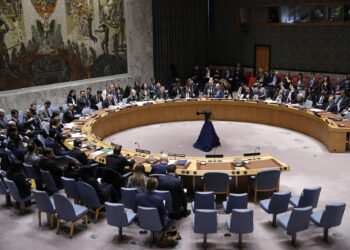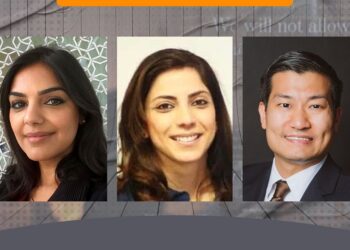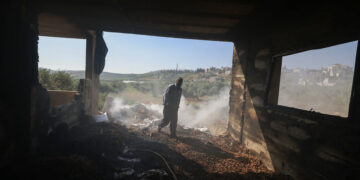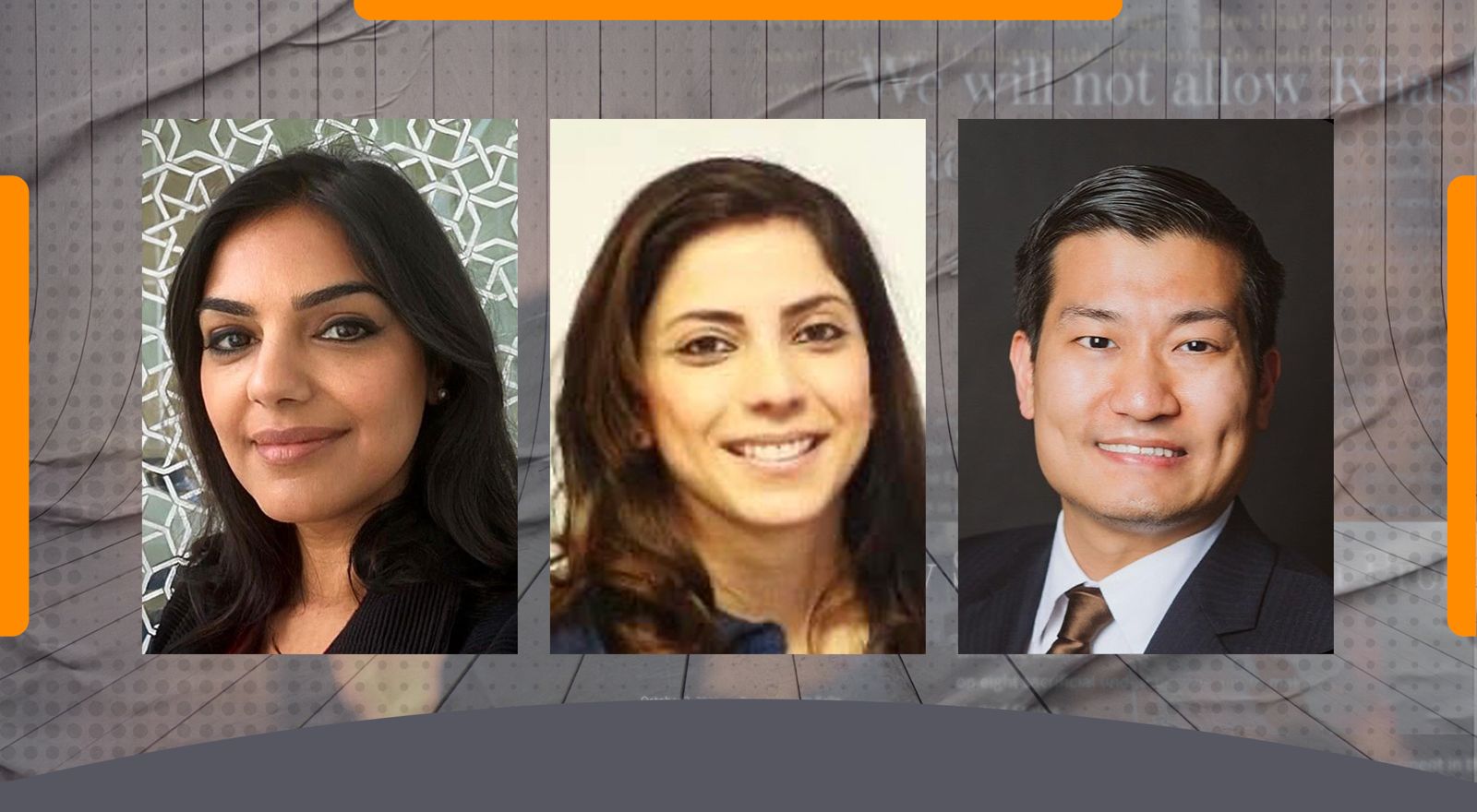Line Khatib is the author of Quest for Democracy: Liberalism in the Modern Arab World and Islamic Revivalism in Syria: The Rise and Fall of Ba’thist Secularism.
Since the initial hopes of the Arab Spring years ago dissolved into renewed authoritarianism across the region, the question often arises: Is Arab liberalism defeated? Have autocrats successfully killed liberal politics and democratic activism once and for all?
The answer is no. For all the setbacks of the past decade, there is a long, dynamic and assertive history of democratic liberalism in the region, demanding individual rights and freedoms based on a constitutional system that respects cultural and political pluralism. In fact, liberal democratic movements have sought to reshape the political landscape since the late 19th and early 20th centuries, starting in the late Ottoman era. Amid various sociopolitical openings, they concentrated their efforts on leveraging the state as a primary means to instigate liberal reforms. They explored locally derived, liberal, non-Western solutions to perceived challenges, shaping their democratic governance theories and addressing issues of despotism (istibdad), civil liberties and state-building. The result is that, up until the 1950s, many countries across the Arab world included multi-partyism, periodic elections, free speech, constitutions that reflected the liberal aspirations of the era, and a general adherence to democratic norms, even as they were still contending with the oppressive remnants of colonial rule.
From the 1960s onward, with authoritarian regimes the dominant political system from Egypt to Syria, things got more complicated for modern Arab liberals as they found themselves outside the institutions of the state altogether, and restricted in their action and speech by state oppression. And yet liberals still continued their activism by forming smaller, decentralized groups to evade government scrutiny and remain active on the ground, focusing on mobilizing reform through non-governmental institutions, social activism and cultural transformation. They emphasized personal responsibility and societal change, and their efforts encompassed combating violence and fighting for women's right and human rights, religious moderation, an independent judiciary and egalitarian laws. Perhaps most importantly, liberals reformulated a public sphere that allowed for them to exist despite state repression and the prevailing authoritarian order.
"The command of free life and of democracy" was still felt, as Syrian writer Khairi al-Zahabi reflected on his country in the late 1970s, early in the era of Hafez al-Assad, as a new form of liberal activism emerged from below. One of the first attempts to revive the liberal order in Syria included members of the Lawyers' Bar Association, who in 1976 formed its own Freedom and Human Rights Committee to hold the state concretely accountable by publishing details about abuses of citizens' rights, and calling for a return to the rule of law and constitutionalism. By fostering awareness and empowering citizens, liberals like al-Zahabi aimed to enact change from the grassroots level from Damascus to Cairo.
For all the setbacks of the past decade, there is a long, dynamic and assertive history of democratic liberalism in the Arab world.
- Line Khatib
By the 2000s and 2010s, liberal democrats across the region were attempting to exert more direct influence on political affairs and governance. These liberals directed their critiques inward, focusing on self-examination, which sparked renewed ideas and discussions, and used innovative approaches in new forms of media online and on satellite television. They established public forums, civil companies, law firms, medical clinics and online platforms and social media, exploiting legal loopholes to challenge state prohibitions and mobilize the public, and they were for the most part operating outside the law. Their actions resulted in mass activity and protests, disrupting the apparent stability of regimes like Hosni Mubarak's in Egypt and Bashar al-Assad's in Syria (after he succeeded his father, Hafez, in 2000) and igniting public debates on issues such as the separation of powers, pluralism and political freedoms.
This time, they were also naming the culprits and the crimes, denying the regimes' their self-proclaimed achievements. "Democracy and human rights today constitute a common humanitarian language," a group of 99 Syrian political activists and intellectuals declared in their short manifesto in 2000, published just months after the death of Hafez al-Assad. "It was permitted to our people in the past, and it will be permitted to them in the future." A key document of the short-lived Damascus Spring, the Statement of the 99, as it became known, called on the regime to end Syria's state of emergency, pardon all political prisoners and allow political exiles to return, establish legal protections for free speech, freedom of the press and freedom of assembly, and to "free public life from the laws, constraints and various forms of surveillance imposed on it."
The manifesto summarized in few words the dialectic between the illiberal and liberal forces in the region, as well as an implicit assertion that liberals have an established past in Syria and are here to stay. It was followed by the Statement of the 1,000, which was signed by 1,000 Syrian intellectuals and was a more direct declaration of the "revival" of civil society in the country, demanding an end to one-party rule.
Yet unlike the Mubarak regime in Egypt, the Assad regime was much less willing to negotiate or to even feign interest in entertaining these demands. It was a harbinger of the coming end of Bashar al-Assad's brief period of political tolerance after taking power. Nevertheless, while these Syrian liberals were harassed, imprisoned and repressed—and ultimately divided and unable to achieve the changes they sought—the forums and organizations that they formed in the early 2000s still challenged the regime. They demonstrated that, despite more than 50 years of autocratic consolidation and political repression in Syria, activists and intellectuals could transcend dogma and strive for freedom together, forming a liberal movement as soon as they were able to do so by engaging the public, organizing, creating associations, holding public meetings and showing unity. These forums and the activists that led them ultimately laid the groundwork for the Syrian uprising in 2011, in particular the Local Coordination Committees that organized the early protests and activism that helped the revolution spread.
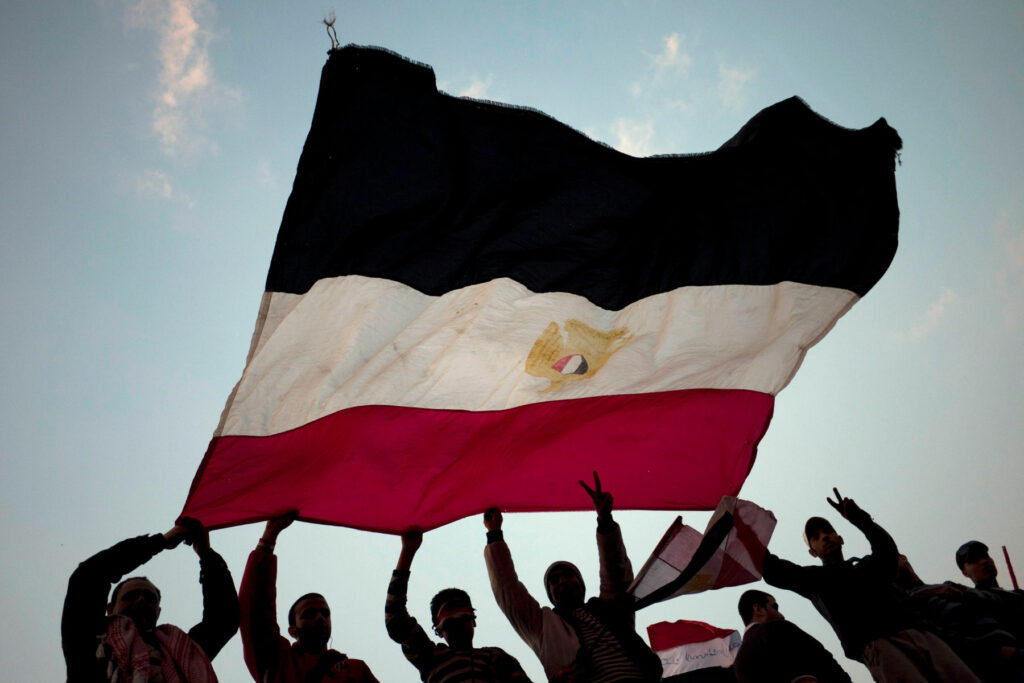
With this longer history in mind, liberal hopes are not dead because history also teaches us that some actions can have paradoxical or unexpected consequences. The incredible levels of regime repression across the region in response to the popular uprisings of the Arab Spring could, in the long run, in fact lead to another revival of liberalism in the Arab world—because liberalism emerged in the region in the first place as a result of the experience of oppression and thrived despite it.
Arab liberalism is different from Western liberalism even though it might have found inspiration in Western liberal intellectualism and politics. It is the direct outcome of authoritarianism and repression, first under the Ottoman Empire and European colonialism in the 19th and early 20th century, and then the nationalist authoritarian regimes of the 1950s and 1960s, both of which saw the rise of thousands of intellectuals, activists, writers, teachers, doctors, lawyers and artists aiming to push back the repressive state and demand their rights. Their popular and civic ideas demonstrated an Arab liberalism that was not simply imported but that developed over time and critically engaged with its context. These liberals were not, as claimed by some observers, disassociated from the region and aligned with the West. Indeed, they fought against the repression of Western powers and imperialism, and advocated for homegrown solutions to local problems.
Modern Arab liberalism emerged, and has been appropriated—then recreated, modified, merged, contextualized and regenerated—to fit and serve the context in which it operated. In other words, like other ideologies that saw the light in the region, such as nationalism and communism, liberalism is both the product of intellectual and political exchange and continuity between different cultures and of an organically conceived desire for sociopolitical emancipation and political justice. Without examining and understanding Arab liberalism and Arab liberals thoroughly, one cannot possibly produce a complete map of the intellectual, cultural, social and political landscape of the Middle East, nor for that matter understand its current state of affairs or foresee its possible future paths. The contemporary Arab liberal movement, which saw its peak in the revolutionary events of 2011, is reflective of and responsible for a number of political and intellectual changes and dynamics at the core of the region, including authoritarian regimes' own calibrated liberalization attempts, no matter how cosmetic.
Liberalism emerged in the region in the first place as a result of the experience of oppression and thrived despite it.
- Line Khatib
As Ahmed Benchemsi, a Moroccan journalist who is also the advocacy and communications director for Human Rights Watch's Middle East and North Africa division, wrote in 2014: "There are no indications that the liberals' power to inspire the Arab people has receded since 2011. In fact, it may have increased."
In Egypt, he noted, liberal commentators and satirists are among the most popular social media accounts. "Even in Saudi Arabia, where the alliance between the ruling family and the Wahhabi establishment is more solid than ever, six out of the 10 most watched YouTube channels (telecom and gaming companies aside) are satirical shows produced by rebellious youth groups," he added. "For those who care to look closer, many other surprising trends are taking over the Arab internet, such as a surge in atheism via dedicated Facebook pages with tens of thousands of followers—unthinkable just five years ago—and gay rights groups popping up in every online corner. And each year, we hear of more attempts to move these groups from the virtual to the real world by staging gay pride parades in Arab cities."
That was nearly a decade ago. Since then, new pro-democracy movements and protests keep rising across the region, from Algeria to Sudan to Iraq. The Arab Spring is not over yet; it never really ended. As a movement for democratic reform, it is simply regrouping, readjusting and will continue to spark new uprisings. Protesters see through the attempts by their governments to blame their miserable situations on outside forces. In Syria, like in Egypt, activists have pledged to continue their struggle for liberal democracy, and to learn from their mistakes.
"Call it whatever you want, criticize it as you wish, betray it, deceive it, divert it, dig the ground under its feet, color it, curse it, do whatever you want," the godfather of Syria's movement for equal citizenship, scholar and activist Hassan Abbas (one of the signers of the Statement of the 99), wrote in 2015. "Because as Galileo Galilei told his detractors, it still revolts despite everything, and it goes on, for it had started only to go on until it achieves that which the people want: a dignified life without injustice and without obscurantism." Another prominent Syrian dissident and signer of the Statement of the 99, journalist Fayez Sarah, wrote in 2020 from London: "It wasn't just daring to dream, but seeking that which the Syrians will eventually reach: freedom, justice and equality despite everything."
Syrian writer and former political prisoner Yassin al-Haj Saleh—whose wife, activist Samira Khalil, helped organize Syria's popular uprising before she was abducted outside Damascus in 2013—has also remained steadfast and defiant in the face of his country's destruction under Bashar al-Assad's regime. "Adequate punishment for crimes committed in Syria may never happen, yet we must not give up on justice," he wrote in 2019, admitting "the dark truth that we live in a world far worse than we did 10 years ago—worse even than we dare admit to ourselves. … I am Samira in her absence."
Al-Haj Saleh added: "We have been crushed, true—but we create meaning from suffering. We struggle to the end, hope needs us as much as we need it. Our powerful enemies do not feel safe and secure unless we surrender ourselves to despair."
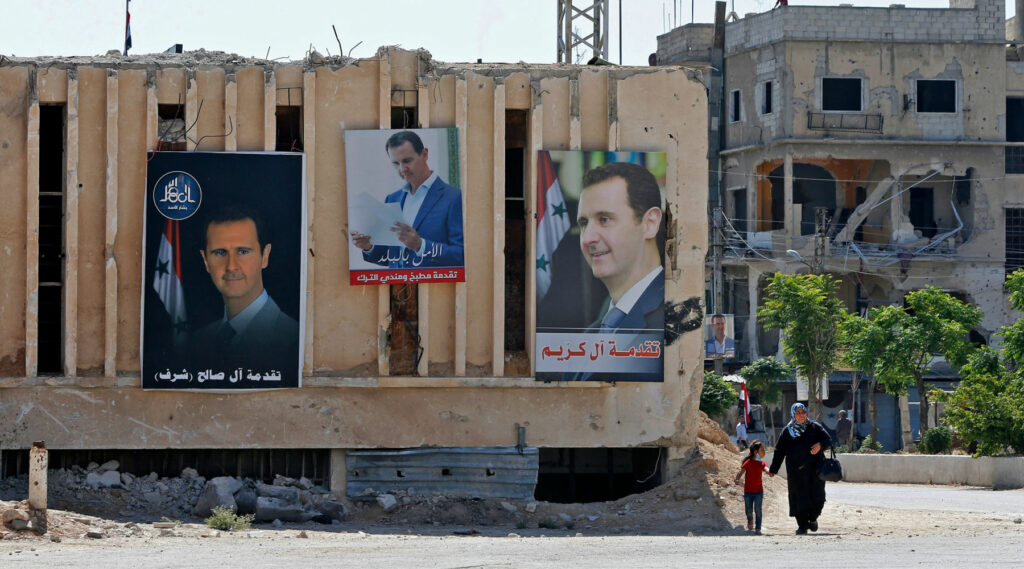
When asked if she regretted the revolution, Syrian writer Suzanne Khawatimi said:
If the revolution hadn't happened, we would still be applauding the hero of fake victories, and be forced out to support rallies, and would watch the members of the National Assembly cheer the rise to power of Hafez al-Asad's grandson, and be silent about the arrests. Our youth would disappear without us being able to mention their names or ask about them, and we'd be insulted and silenced, and tremble when one of the security branches is mentioned. It is not a happy picture no matter what!
In line with this commitment to change, right before his death in April 2020, veteran Syrian political activist and writer Michel Kilo, a central figure in the Damascus Spring, wrote a letter from his hospital bed in France, where he was exiled, to remind Syrians to unite in their struggle against tyranny and to focus on the demand for individual freedoms and citizens' rights. "No aim is more important than liberty," he wrote. "Hold on to it, seek it in all things, whether large or small, never abandon it. It alone contains the death of tyranny."
Arab liberals were an essential part of the Arab Spring, playing a key role in shaping the narrative and demands of the uprisings. But their loosely organized, horizontal and largely leaderless structures—which were meant to shun elitist politics and better reflect popular needs and aspirations (characteristics that had proven essential to their survival during previous decades of authoritarianism)—in the end undermined their position as political leaders of a revolution. In Tunisia, for example, as well as in Egypt, some liberals were either co-opted or sidelined by the military and other counterrevolutionary forces. But in Egypt and Syria as well, liberal leaders were also among the biggest targets of regime repression—imprisoned, tortured and forced into exile. In both countries, young Egyptian and Syrian liberals who were looking for assertive and clear leaders to follow and trust were in many ways left on their own. The result was that activists who risked their lives to protest were brutally silenced.
Further, the Islamization of the revolution and the intervention of foreign powers on the side of the despots left liberals divided, while the inability or unwillingness of established Western democracies to take a stand against the terror and horror that these regimes unleashed again their own people left many liberals in the region bitter, isolated and, as a result, often fatally compromised. Thus the Arab Spring, which brought out into the open the liberal currents within Arab society and the possibility of change, also brought disarray as the existing regimes' resilience turned out to be stronger than anticipated.
New ways of organizing and mobilizing are still possible, and a new generation may do a better job at putting an end to despotism and humiliation. As history has shown across the region, liberalism—the product of a yearning to be free, free from tyranny and from forces that are perceived to be uncompromising and unjust—has emerged anew from the shadow of repression and exploitation. For now, the liberal movement will continue to struggle, but is unlikely to simply disappear. For many Arab liberals, hope is not dead. As Kilo wrote after a lifetime pressing for democratic change in Syria, "Liberty is what our people most urgently require if they are to re-discover themselves, to affirm their identity and to restore the sense of the word 'citizenship' to our land."













